Photo Credit: Shutterstock
How do we see the future of the aid sector in uncertain times? In a crisis like this, what sort of leadership shall we apply? Even when lockdowns are eased out or ended, how can humanitarian leaders be prepared and what challenges should they be expecting?
These questions were posed to an expert panel at the Community World Service Asia and ACT Church of Sweden’s webinar held on May 7th highlighting the crucial role of and best practices adapted by humanitarian leaders at an organizational and community level to manage the impact of a crisis such as the COVID-19. Tanya Wood, Executive Director of the CHS Alliance, was joined by panelists Deepmala Mahla, Regional Director for Asia of CARE, and Ayesha Salma, Group Head of Quality Assurance, Research and Design for Pakistan Poverty Alleviation Fund (PPAF). The webinar was moderated by Uma Narayanan – Independent Consultant and specialist on human resources and organizational development.
Leaders face a new kind of challenge
Crisis has a way to show, change direction and recalibrate what leadership is actually about. With the COVID-19 pandemic being the biggest public health issue of our day, having a far-reaching impact on economies and human lives, leaders are faced with a new kind of challenge.
While there are significant efforts to respond to COVID-19 pandemic through various needs, humanitarian and development organizations continue to explore their own ability to survive, to sustain, to bounce back and move forward. Most of you can relate to this. The role of leadership is crucial in current settings
said Uma Narayanan, while moderating and outlining the agenda of the webinar.
Ayesha Salma highlighted that leadership emerges in adversity and professionals must take this crisis as a real opportunity to exhibit that. She touched upon three main points that leadership in PPAF is focusing on, namely, business continuity, economic revival and innovative measures.
Citing Pakistan Poverty Alleviation Fund’s example, Ayesha shared that the leadership’s first initiative was to ensure their staff were equipped with the right information to protect themselves.
We have adopted a daily mechanism to convey updated, positive messages to staff and encourage them to take this as an opportunity to exercise their leadership skills. Moreover, the agility and adaptability to switch systems was important which was built on the basis of our IT platforms and our regular HR disciplines that helped our organization survive this crisis. The staff is responsible for sharing weekly work updates to supervisors, which are then shared with HR. We have seen a critical strategic gain from doing so because it has allowed employees in this lockout to refocus their resources on more high value research. So many positive things have come out of this new way of working for us.
Deepmala pointed out the need for the humanitarian sector to look at its essence of work.
We’re used to working in groups; interacting with people, traveling to the neighborhoods, visiting households. We can’t work physically within the existing environment. For that cause we have to change our way of functioning radically. That needs new ideas, a new way of providing leadership at the organizational level.
Participants raised concerns about the ability to lead organizations in countries where the majority live below the poverty line and there is little support for aid organizations to respond. Deepmala responded to that saying,
That is a real challenge and communities need actual support. In this critical moment, leaders have to work at three levels – community, system and policy. Another key part of our roles working as humanitarian workers is to advocate and influence governments to act, donors to fund.
Continue to ‘Put People at the Centre’
One of the primary problems encountered in leadership positions is to achieve a balance between the humanitarian imperative and the caring obligation.
As a humanitarian organization, the first priority needs to be the protection of the people in any decision and action, living up to our humanitarian mandate. Your greatest responsibility, at the same time, is to take care of your staff, to support and protect them and to ensure their well-being. Consequently, leadership should be flexible and capable of putting in innovative approaches to promote and bringing out the positivity from the new way of work,
highlights Deepmala.
Remembering the core humanitarian mandate was identified as an important part of leadership in this situation. Panelists agreed that there must be commitment towards achieving long-term economic recovery and protection of communities.
Deepmala discussed the importance of focusing on the impact of the crisis at the community level as well. Though everyone is trying to help communities, there still might be ignorance at community-level about COVID-19 and its preventive measures. The impracticality of the global health advice is physical distancing and staying at home. When advising to stay at home, one is assuming that the individuals have a home with livable conditions and food to last a few days. One must remember that this is an assumption and not the reality in many cases around the world.
In addition, many communities have self-isolated themselves, not allowing any outsider to join which has made it impossible for humanitarian workers to access those groups.
We are also aware of the major livelihoods crisis communities are facing at this point; millions are made practically homeless, without having the necessary food and meals. This is the community we are accountable to serve. For this reason, we have to firstly identify leadership at community level. Any intervention can succeed if only the community is involved and with the community itself leading.
With a number of CHS members participating in the webinar, the light was shed on the basic foundation of CHS – being accountable to whom we serve, and to keep that as a basis for organizational operations and response in this pandemic. CHS aims to create and improve the transparency of organizations and to ensure its rooted in the organizational community, strategies, procedures, and activities. Tanya shared that the CHS has been made available in the plainest language to make it understandable as possible. There is a need for organizations to promote the CHS in and with communities as it tells communities on what to expect and on what they can hold the aid community accountable for. Maintaining an open and accessible forum for workers to express their thoughts, feedback and ideas, such as providing a virtual suggestion box online was highly recommended.
Communication and Compassion
Another key aspect that emerged from the discussion from speakers and participants alike was communications. Lack of and improper communications is one of the biggest challenge in the current crisis.
Communications is at the heart of CHS. CHS is working on a report which shows how as a sector we are meeting our commitments to the CHS and unfortunately it shows that the one thing we as humanitarians are challenged with is communications. This relates to communicating with the people and with each other. We have planned to launch a research piece on how organizations are adapting on Complaint and Feedback Mechanism. We have to make sure that we are adapting and that this mechanism is visible, well-staffed, well-managed and well-referred as they can possibly be,
highlighted Tanya.
For many years the humanitarian sector has all been about being fast, life-saving and reaching more and more people. This means we have invested heavily in efficiency-centered programs and processes. The question is, have we neglected some of the fundamental principles of humanity, how we work and not to lose compassion?
Talking about CHS’s initiatives on staff care and compassion, Tanya shared,
At CHS, we’ve been working on an effort that we need to push three areas of change; we need to be more compassionate internally, we need to be more compassionate with our staff, and we need to create environments that reflect how we care towards our staff and their mental health and well-being. The moto we are using is ‘You have to be well to serve others well’. Part of that is a launch of a series of conversions to see what it looks like in different parts of the globe, to see how we promote and be compassionate in our organizations.
Tanya Woods shared the CHS Commitment and COVID-19 with participants who were seeking recommendations on new trends on funding, inclusion, and engaging with communities.
More than 178 humanitarian and development practitioners from 29 countries representing the continents of Australia, Africa, Asia and Europe took part in this ninety-minute webinar.
When highlighting the future of the aid sector post the pandemic, Tanya Woods said,
One of the opportunities that is forced amongst us from this crisis is to fill the hole in role of national and local NGOs and where INGOs have to play a more supportive role rather than a directive one. It will be interesting to see how this plays out within the sector.
Ayesha added,
Because of the lack of capital at a global level, creating your own revenue streams would be the most important in the immediate future. Now is the moment to innovate!
Reflections:
Sharing the opinions and suggestions with people around us will encourage them to follow you and innovate. Never underestimate the importance of reflecting your sincerity. This is the best opportunity to develop solutions in respect to structures that are revolutionary and successful in solving the current situation. As per our needs, we can still build what’s fit for purpose.
Ayesha Salma
This is an important time for organizations to outline a “duty of care” framework for staff and communities, and find how duty of care covers different groups in different circumstances. It will not be the same in all circumstances. In normal situations, duty of care is fulfilled by many arrangements in the org, but there is greater responsibility in these situations. So we identify gaps in policies, process, systems and interventions.
Aliya H.
Organizations who want to continue implementing their activities on grounds must consider and keep in loop the grass roots organization who are really at front lines.
Fayyaz Noor
Two years ago we saw a different type of phenomena that impacted our sector that was the #MeToo movement. We have seen the trend, particularly through INGOs, a public rebuttal where there is a disparity in how organizations act and how they do not comply with the principles they teach. It is a reminder to us that as humanitarians we are always judged and rightfully so on how we respond to that crisis and COVID is going to do that again. I would like to applaud Community World Service Asia for supporting such outstanding webinars, uniting people, thinking about what is relevant, talking about topics such as leadership, caring and kindness, which are really necessary.
Tanya Wood

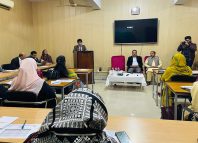
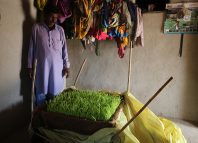
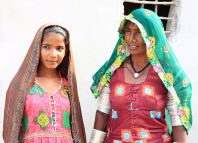
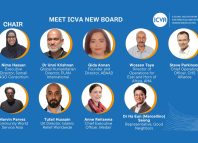
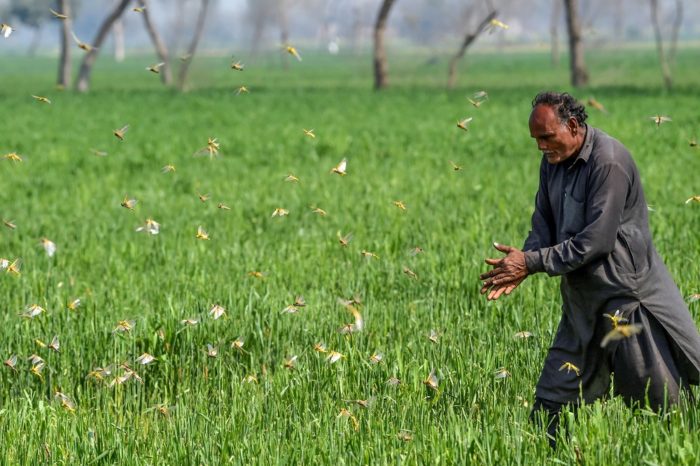
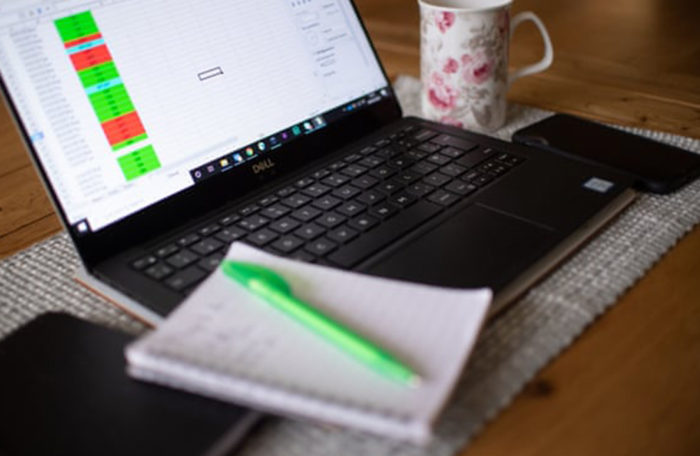
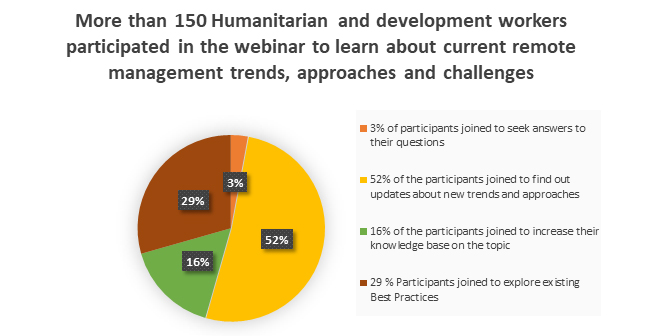
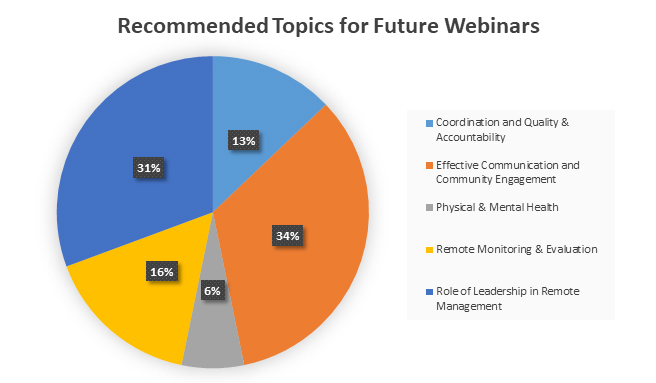





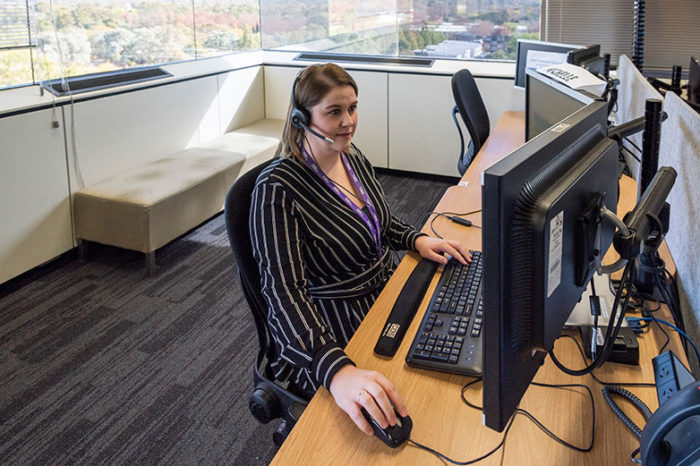
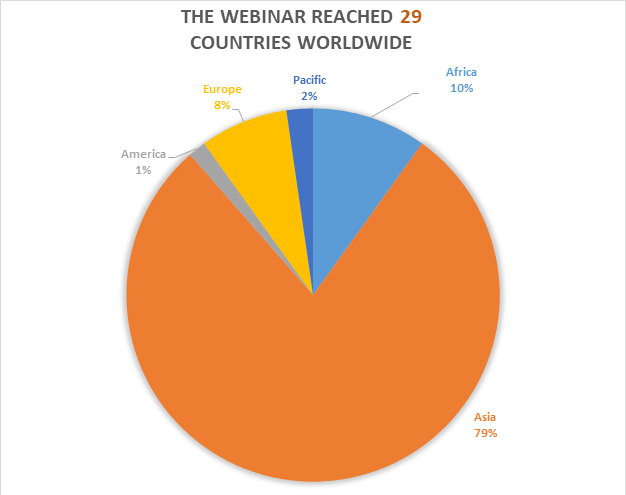
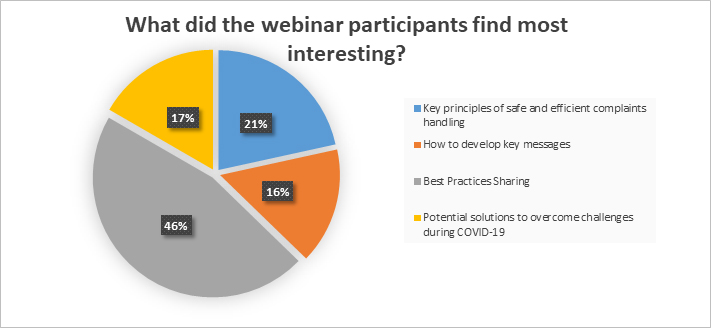
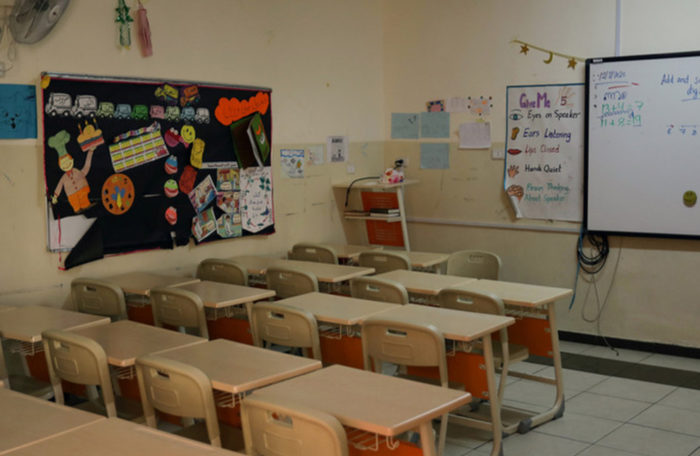
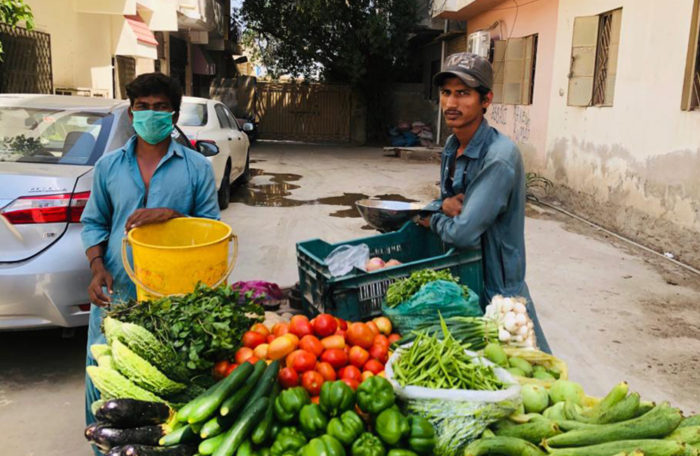

 Ester Dross – Independent Consultant
Ester Dross – Independent Consultant

 James Thomson is the Senior Protection and Policy Advisor at Act for Peace. For the past two decades has specialised protection advocacy, standard-setting, programming and capacity development. He has extensive experience as a protection trainer, has delivered over 30 protection trainings for local organisations and communities, and worked closely with local partners in a wide variety of contexts to support capacity development, program design, policy development and advocacy. Over the past 20 years, he has also engaged extensively in a wide range of protection policy, standard-setting and practice initaitves at the regional and global level.
James Thomson is the Senior Protection and Policy Advisor at Act for Peace. For the past two decades has specialised protection advocacy, standard-setting, programming and capacity development. He has extensive experience as a protection trainer, has delivered over 30 protection trainings for local organisations and communities, and worked closely with local partners in a wide variety of contexts to support capacity development, program design, policy development and advocacy. Over the past 20 years, he has also engaged extensively in a wide range of protection policy, standard-setting and practice initaitves at the regional and global level.

 Ms. Uma Narayanan, specializes in human resources, organizational development and accountability for medium to large-scale organizations in the humanitarian sector. Ms. Narayanan has a background in International Organizational and Systems Development and worked as an Organization Development and Human Resources practitioner mostly in Southeast Asia and South Asia, for more than a decade. In her OD capacity, she has carried out numerous assignments on program reviews, evaluations and organizational assessments.
Ms. Uma Narayanan, specializes in human resources, organizational development and accountability for medium to large-scale organizations in the humanitarian sector. Ms. Narayanan has a background in International Organizational and Systems Development and worked as an Organization Development and Human Resources practitioner mostly in Southeast Asia and South Asia, for more than a decade. In her OD capacity, she has carried out numerous assignments on program reviews, evaluations and organizational assessments.